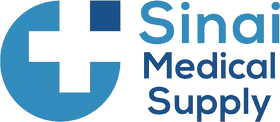Before we begin, there are certain things that must get our attention:
- Technology has enabled accuracy in screening diseases
- The use of smart devices has increased to remotely monitor patients
- Medical device hold a minimum of 30% of the total capital invested on secondary or tertiary care center
The success of healthcare system depends both on the availability of specialized personnel as well as healthcare technologies. Medical devices and equipment are crucial to delivering the highest quality care to the patients, both at home and hospitals. Medical supplies enable health service providers to deliver quality healthcare services effectively and efficiently.
The healthcare industry is expanding rapidly. However, it has been burdened tremendously after the COVID-19 pandemic, and the situation is no different worldwide. The situation is extremely difficult in developing and poor countries where the healthcare system is plagued by the lack of quality healthcare equipment and services.
Medical devices and healthcare
Clearly, medical devices play a key role when it comes to effective screening, diagnosis and treatment of diseases while monitoring healthcare indices to boost prevention. Primarily, the manufacturing of medical supplies and equipment focus more on quality care and life expectancy. However, the need is to enhance the affordability as well, because cost has a large scale impact on healthcare.
Testing
While the accuracy has increased in testing due to technological advancements, portability of devices has facilitated better accessibility at the same time. Point-of-care devices have improved diagnostic mechanism and primary levels while enhancing the access to healthcare beyond traditional healthcare facilities.
Treatment and care
Technological advancements have also enabled surgeons to treat even highly complex conditions successfully, while reducing the duration of hospital stay. Furthermore, the cost of hospital stay has also reduced.
Monitoring
Advancements in the field of medical supply have enabled better monitoring even at home, while keeping a track of all major health indicators. Apart from that, highly specialized devices are also being used to monitor patients and diagnose life-threatening conditions as early as possible. The impact is the reduction in hospital visits and lower pressure on already over-burdened healthcare facilities.
While it is clear that the medical device sector will grow tremendously in the future, the need is to cut down the costs to allow better access to healthcare for patients of varying budgets. The advancements are not just for hospitals and other healthcare sectors, but also for providing quality healthcare for at-home care.
